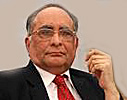
How To Ensure Expenditure On Director’s Relative’s Education Is Deductible
CA Somil Agarwal
There are several judgements on the question of deductibility of expenditure incurred on education of a director’s relative. While some have held the expenditure to be incurred for business purposes, others have held it to be in the nature of personal expenditure. The author has carefully analyzed the judgements and culled out the core principles that need to be borne in mind to ensure that the expenditure is deductible
Section 37(1) of the Income Tax Act, 1961 allows such expenses against the taxable business profits, which inter alia are not personal expenses and are incurred wholly and exclusively for the purpose of business. There are certain types of expenses which on the face of it appear to be personal expense or at least an expense not incurred wholly and exclusively for the purpose of business. Such expenses invite incisive inquiry during the course of assessment proceeding. One such expense is the expense incurred by an assessee carrying on the business, on the higher education of the son(s)/daughter(s) of the directors/partners/proprietor and which is claimed as deduction by that assessee against the taxable business profits. Attempt of the Revenue remains to find holes in the explanation furnished by the assessee during the course of assessment proceeding showing the business nexus of the said expenditure and to disallow it. Once the expenditure so claimed is disallowed in assessment, matter is taken into appeals at various stages with all sorts of uncertainties creeping in. In fact such claim is a sensitive claim from the stand point of the Revenue and if such claim is disallowed, such situation is fraught with severe consequences for the assessee.







